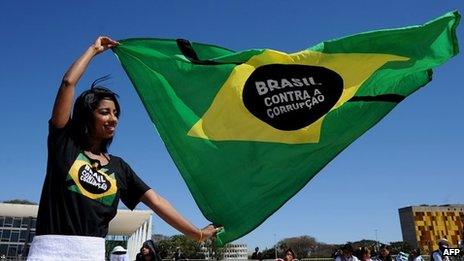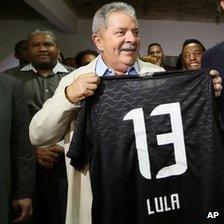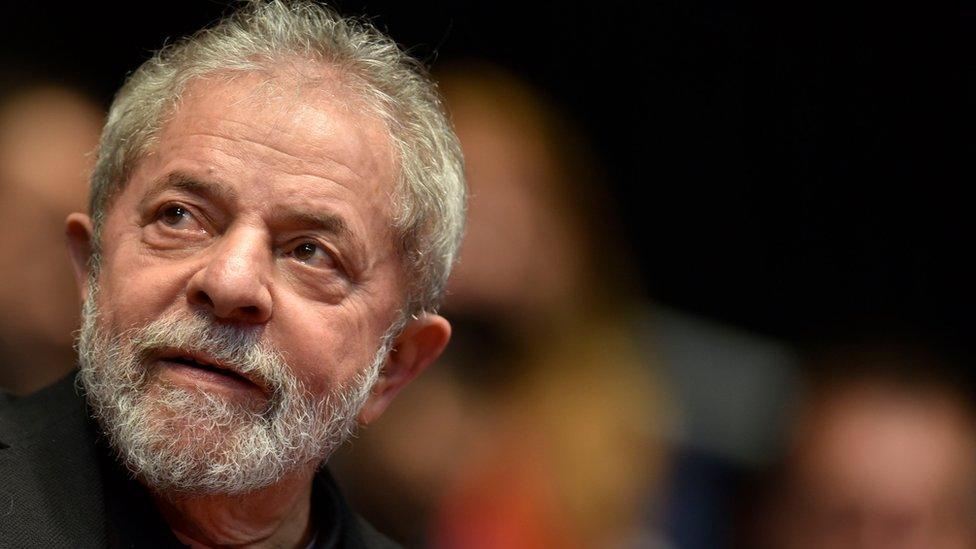Brazil Mensalao trial claims politician Joao Paulo Cunha
- Published

"Brazil against corruption," reads the adapted Brazilian flag outside the Supreme Court
A senior Brazilian politician has pulled out of an election after being convicted of corruption, making him the first political casualty of a major long-running trial.
Joao Paulo Cunha, ex-president of the lower house of Congress, said he would not run for mayor of Osasco city.
On Thursday the Supreme Court convicted him of corruption and money laundering.
Thirty-seven defendants including members of the political elite are accused of misusing public funds.
They allegedly paid coalition partners to support the government's agenda between 2002 and 2005 as part of a scheme known locally as Mensalao, which means big monthly allowance.
Mr Cunha is a close ally of former President Luiz Inacio Lula da Silva, who is not implicated in the scandal.
'Campaign debts'
The governing Workers' Party denies the Mensalao scheme ever existed and blames the media and right-wing opposition parties for the allegations.
Some of the accused admit receiving money but deny the payments were made to guarantee political support. Instead they say the scheme was only a way of paying electoral campaign debts.

Former President Lula denies any knowledge of the scheme
Because the debts were not made public, the payments are regarded as illegal.
But the practice is common in Brazilian politics, BBC correspondents say.
The controversy almost led to the downfall of the government of President Lula in 2005, but he was comfortably re-elected the year after.
The allegations have taken several years to get to court.
Mr Cunha is said to have wept as he told party supporters of his decision to pull out of the mayoral election.
In an official note, the Workers' Party says Joao Paulo Cunha "will continue to contribute for the development of Osasco".
According to the accusation he received $24,000 (£15,000) from a businessman who was awarded a contract with Congress.
Cunha is the first high profile victim since the trial began.
The trial is taking place just a few weeks before important municipal elections on 7 October.
Sentencing in the case will take place when the hearing is completed.
- Published16 November 2013

- Published11 June 2019
